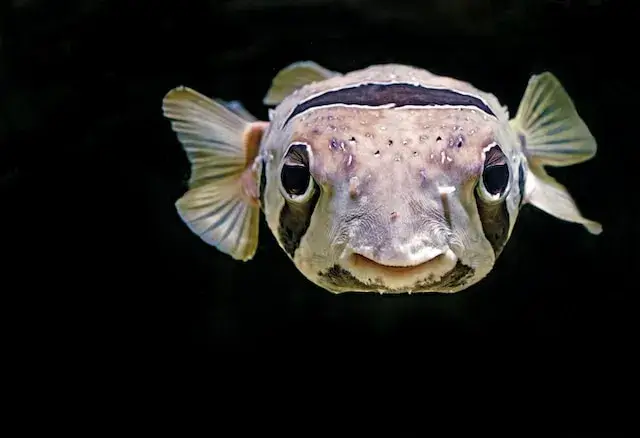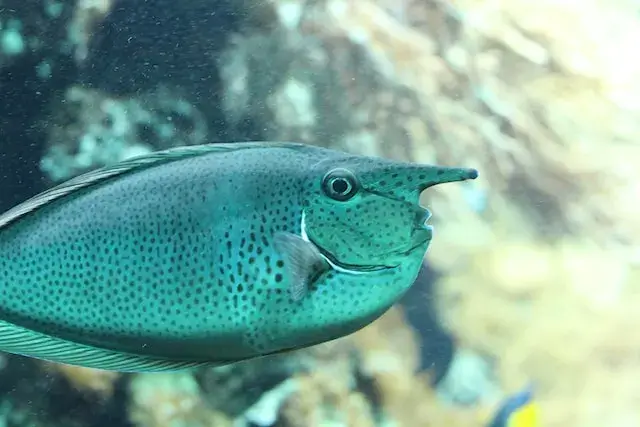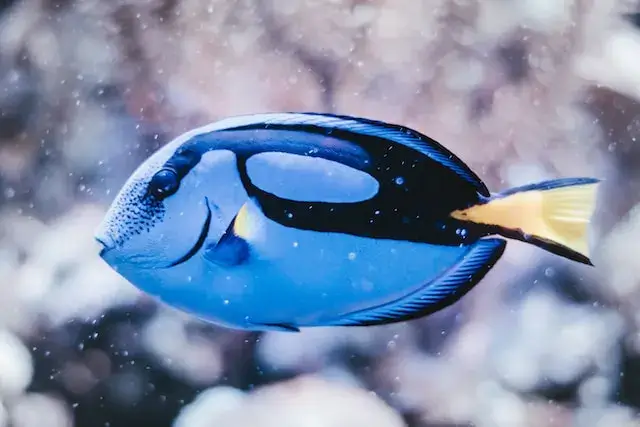As someone passionate about catching fish, you’ve got to know that smell can significantly affect your ability to catch fish.
Fish can smell, and this is probably leading you to ask the next big question as someone going out on your big catch.
Can fish smell human scent? This is what you have come to find out, isn’t it? Well then, read on to see.
Understanding A Fish’s Nose

Fish have gills set apart to breathe. Their nostrils, also known as nares, are used to sniff the water and detect whether danger or food is coming, so you must be competent to catch these fish.
So, those two openings on their face, which you see as nostrils, come with a strongly developed sense of smell that a human cannot beat, and sometimes this could be why you are out there at sea, unable to catch any fish.
Can Fish Smell Human Scent?
Yes, fish can smell the human scent. Fish have highly developed chemoreceptors responsible for their extraordinary senses of taste and smell.
Their ability to detect unnatural tastes and smells, such as human scent, gasoline, oil, sunscreen, insect repellent, rust, mold, and other substances, can affect your ability to catch fish.
Sometimes the bait you are using can take traces of your aftershave, the cigarette you smoked, and what else, the sunblock you use, an insect repellent, and you sure are now adding more things to the list.
Now that you have some idea of it be sure that when you go fishing, you take care of this.
Do Fish Have A Better Sense Of Smell Than Humans?

Yes, because while humans use our noses to breathe and smell, a fish uses its nose only to smell, and they use this strong sense of smell which they use to find the food they need underwater.
The fish you are about to catch is a thousand times more effective than you in its sense of smell, which means that fish have a better understanding of smell than humans.
What Smells Do Fish Hate?
It would help if you avoided some smells when fishing, as they are known to repel fish. Read on to know them.
The one that tops the list is petroleum, so make sure that when you go fishing, you keep the bait far from it.
And then there are other kinds of oils and greases, like motor oil, gas oil,
diesel oil, and reel oil, all of which can be highly repelling to a fish.
After this come your brands of solid soaps and perfumes which you also need to keep away when you are out there trying to catch some fish.
Must Read: Are shrimp bottom feeders?
What Smells Are Fish Attracted To?
While there are some smells that fish don’t like, there are some that a fish is naturally attracted to.
Here is a short list for you.
- Natural Oil: The smell of gasoline, fish pheromones, and amino acids is very effective in attracting fish. Amino acids leave a strong scent trail that most fish will follow.
- Garlic: Sometimes, simple garlic can do the trick. Garlic has a powerful smell that will not just camouflage other scents that repel fish but also make a fish want to come and bite it. To make this more effective, add some olive oil to it, as it can enhance the scent that comes with it.
- Dairy Products: Of these, cheese is known to be the most effective, as bottom feeders are especially attracted to cheese.
- Coffee: Caffeine can be a great stimulant to a fish’s sense of smell. This is especially true with small fish that are used to crawling around coffee grounds to catch worms. So, these fish think they are in to catch some worms as they swim toward your bait.
- Fish Oil: Cod liver oil and tuna oil may not attract all fish but can bring a lot of predator fish, assuming that there is somewhere around a dying fish. In other words, while coffee helps you catch the small fish, fish oils target the big fish, whose diet is the small fish.
- Saliva: You may not believe it, but this saliva can greatly camouflage scents that repel a fish. And it’s readily available where you only lick the knot to add some spit.
How far can fish smell?

Fish come with excellent olfactory abilities even underwater, and can smell from quite a distance to find food.
A fish can smell up to about 15 feet, but this may vary according to the type of fish.
Catfish, for one, can smell from a distance of 100 yards.
Today climate change is on the increase and is known to affect this sense of smell in fish. So, this is another thing the world needs to do to protect our fish.
Can A Fish Smell My Hand Sanitizer?
Hand sanitizers generally come with a soapy or alcoholic scent that can often be
overpowering, even to human beings, so you can imagine how it is with fish.
Yes, a fish can detect the hand sanitizer you used on your hand before working on the bait, so be careful with this.
Find a mild soap instead to replace this. And if you did use some hand sanitizer, try rubbing your hands through your hair. This can reduce some of the smell, provided you didn’t use some strong soap or shampoo on your hair too.
Recommended Reading: What fish is not a bottom feeder?
Tips For Anglers Improving Their Techniques And Success Rates
If you are an angler trying to improve your fishing tips, this article wouldn’t be complete without helping you with it, so read on.
The Hook: As far as possible, choose single hooks as fishes hold on to treble hooks in their struggle to escape, leading to a loss of your catch.
The Line: Remember that the line should be tight, and you must yank the rod with just the right tension. Ensure your rod is under so you can retrieve your catch with a smooth and solid motion without fighting too hard.
The Landing: Big fish are a joy to catch but hard to fight, which calls for an effective landing. The fish will thrash about, but the idea is to briskly lift it out from the water in a single swift movement so it’s in your boat without much of a fight.
These are only a few essential tips for catching your fish. Start with these, and you will be learning more till you become a pro at catching fish.
Final Thoughts: Can Fish Smell Human Scent?
Now that you know how to do what it takes, the next time you head out for some fishing, don’t forget to ensure this. All this is very important as the right smells can go a long way in drawing fish nearer to the bait, even from great distances.
And with that, here’s hoping that you are ready and armed with the right kinds of scents and smells to help you come across the suitable types of fish.
May your fishing brim with some of the best catches you make as a reward for your hard work and determination in taking all the proper steps before you go out there to catch your fish.



